Ronan Perry
Causal Discovery in Heterogeneous Environments Under the Sparse Mechanism Shift Hypothesis
Jun 04, 2022



Abstract:Machine learning approaches commonly rely on the assumption of independent and identically distributed (i.i.d.) data. In reality, however, this assumption is almost always violated due to distribution shifts between environments. Although valuable learning signals can be provided by heterogeneous data from changing distributions, it is also known that learning under arbitrary (adversarial) changes is impossible. Causality provides a useful framework for modeling distribution shifts, since causal models encode both observational and interventional distributions. In this work, we explore the sparse mechanism shift hypothesis, which posits that distribution shifts occur due to a small number of changing causal conditionals. Motivated by this idea, we apply it to learning causal structure from heterogeneous environments, where i.i.d. data only allows for learning an equivalence class of graphs without restrictive assumptions. We propose the Mechanism Shift Score (MSS), a score-based approach amenable to various empirical estimators, which provably identifies the entire causal structure with high probability if the sparse mechanism shift hypothesis holds. Empirically, we verify behavior predicted by the theory and compare multiple estimators and score functions to identify the best approaches in practice. Compared to other methods, we show how MSS bridges a gap by both being nonparametric as well as explicitly leveraging sparse changes.
mvlearn: Multiview Machine Learning in Python
May 25, 2020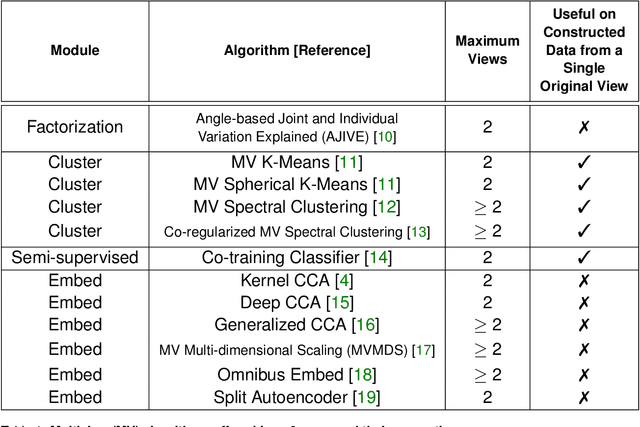
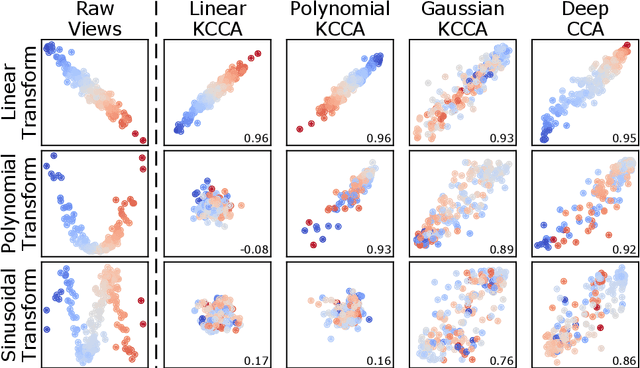
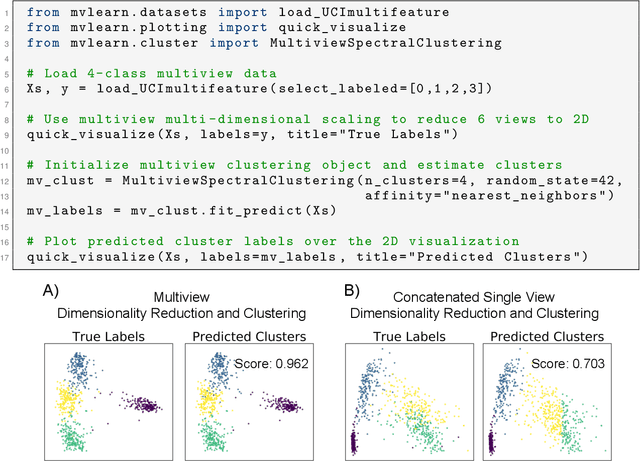
Abstract:As data are generated more and more from multiple disparate sources, multiview datasets, where each sample has features in distinct views, have ballooned in recent years. However, no comprehensive package exists that enables non-specialists to use these methods easily. mvlearn, is a Python library which implements the leading multiview machine learning methods. Its simple API closely follows that of scikit-learn for increased ease-of-use. The package can be installed from Python Package Index (PyPI) or the conda package manager and is released under the Apache 2.0 open-source license. The documentation, detailed tutorials, and all releases are available at https://mvlearn.neurodata.io/.
Manifold Forests: Closing the Gap on Neural Networks
Sep 25, 2019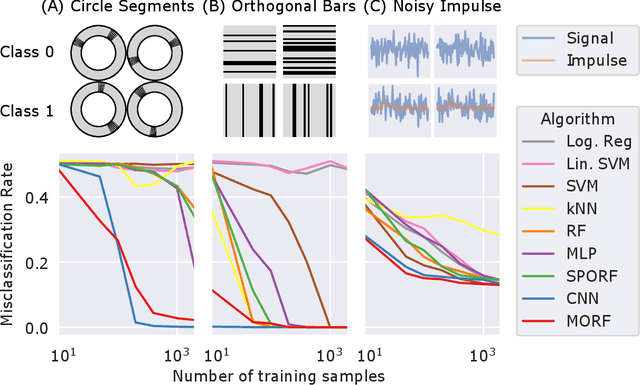

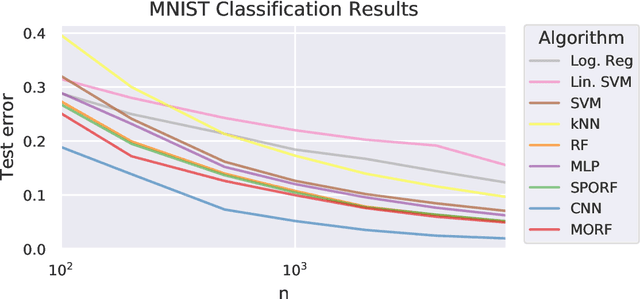
Abstract:Decision forests (DF), in particular random forests and gradient boosting trees, have demonstrated state-of-the-art accuracy compared to other methods in many supervised learning scenarios. In particular, DFs dominate other methods in tabular data, that is, when the feature space is unstructured, so that the signal is invariant to permuting feature indices. However, in structured data lying on a manifold---such as images, text, and speech---neural nets (NN) tend to outperform DFs. We conjecture that at least part of the reason for this is that the input to NN is not simply the feature magnitudes, but also their indices (for example, the convolution operation uses "feature locality"). In contrast, na\"ive DF implementations fail to explicitly consider feature indices. A recently proposed DF approach demonstrates that DFs, for each node, implicitly sample a random matrix from some specific distribution. Here, we build on that to show that one can choose distributions in a \emph{manifold aware fashion}. For example, for image classification, rather than randomly selecting pixels, one can randomly select contiguous patches. We demonstrate the empirical performance of data living on three different manifolds: images, time-series, and a torus. In all three cases, our Manifold Forest (\Mf) algorithm empirically dominates other state-of-the-art approaches that ignore feature space structure, achieving a lower classification error on all sample sizes. This dominance extends to the MNIST data set as well. Moreover, both training and test time is significantly faster for manifold forests as compared to deep nets. This approach, therefore, has promise to enable DFs and other machine learning methods to close the gap with deep nets on manifold-valued data.
 Add to Chrome
Add to Chrome Add to Firefox
Add to Firefox Add to Edge
Add to Edge